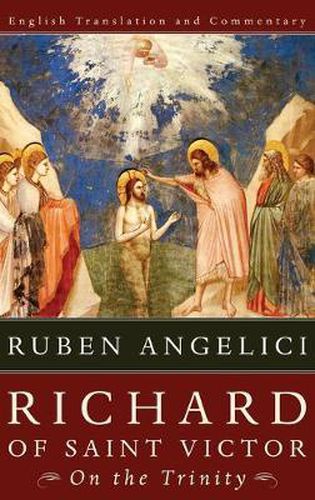Readings Newsletter
Become a Readings Member to make your shopping experience even easier.
Sign in or sign up for free!
You’re not far away from qualifying for FREE standard shipping within Australia
You’ve qualified for FREE standard shipping within Australia
The cart is loading…






This title is printed to order. This book may have been self-published. If so, we cannot guarantee the quality of the content. In the main most books will have gone through the editing process however some may not. We therefore suggest that you be aware of this before ordering this book. If in doubt check either the author or publisher’s details as we are unable to accept any returns unless they are faulty. Please contact us if you have any questions.
Very few in the history of the church have not struggled with the dogma of the Trinity. Those who have not dismissed it as incomprehensible gibberish have found it a battlefield for division and misunderstanding. Even Christians, who adhere to the faith of the Creeds, have often found such dogma difficult to grasp. Richard of Saint Victor, a twelfth-century Scottish monk and Prior in the Abbey of Saint Victor, is emblematic in this struggle: I have often read that there is … [only] one God … I have also read … that he is one and triune … But I do not remember having read anything on the evidences for these assertions. Richard’s theological response stems from a profoundly mystical life of prayer, which, in the Spirit, seeks to involve the mind, in continuation with the great Augustinian and Anselmian tradition. Ultimately, he presents a trinitarian model, intelligible to a Western context but which could also awake admiration from Greek theologians. Today Richard’s dogmatics could represent a bridge for dialogue between different traditions. For the first time this theological masterpiece is being made available, unabridged, in English to allow a broader theological public to benefit from Richard’s accomplishments. The translation offered here attempts to provide a clear and flowing text, while remaining as literally faithful as possible to the original Latin.
$9.00 standard shipping within Australia
FREE standard shipping within Australia for orders over $100.00
Express & International shipping calculated at checkout
This title is printed to order. This book may have been self-published. If so, we cannot guarantee the quality of the content. In the main most books will have gone through the editing process however some may not. We therefore suggest that you be aware of this before ordering this book. If in doubt check either the author or publisher’s details as we are unable to accept any returns unless they are faulty. Please contact us if you have any questions.
Very few in the history of the church have not struggled with the dogma of the Trinity. Those who have not dismissed it as incomprehensible gibberish have found it a battlefield for division and misunderstanding. Even Christians, who adhere to the faith of the Creeds, have often found such dogma difficult to grasp. Richard of Saint Victor, a twelfth-century Scottish monk and Prior in the Abbey of Saint Victor, is emblematic in this struggle: I have often read that there is … [only] one God … I have also read … that he is one and triune … But I do not remember having read anything on the evidences for these assertions. Richard’s theological response stems from a profoundly mystical life of prayer, which, in the Spirit, seeks to involve the mind, in continuation with the great Augustinian and Anselmian tradition. Ultimately, he presents a trinitarian model, intelligible to a Western context but which could also awake admiration from Greek theologians. Today Richard’s dogmatics could represent a bridge for dialogue between different traditions. For the first time this theological masterpiece is being made available, unabridged, in English to allow a broader theological public to benefit from Richard’s accomplishments. The translation offered here attempts to provide a clear and flowing text, while remaining as literally faithful as possible to the original Latin.